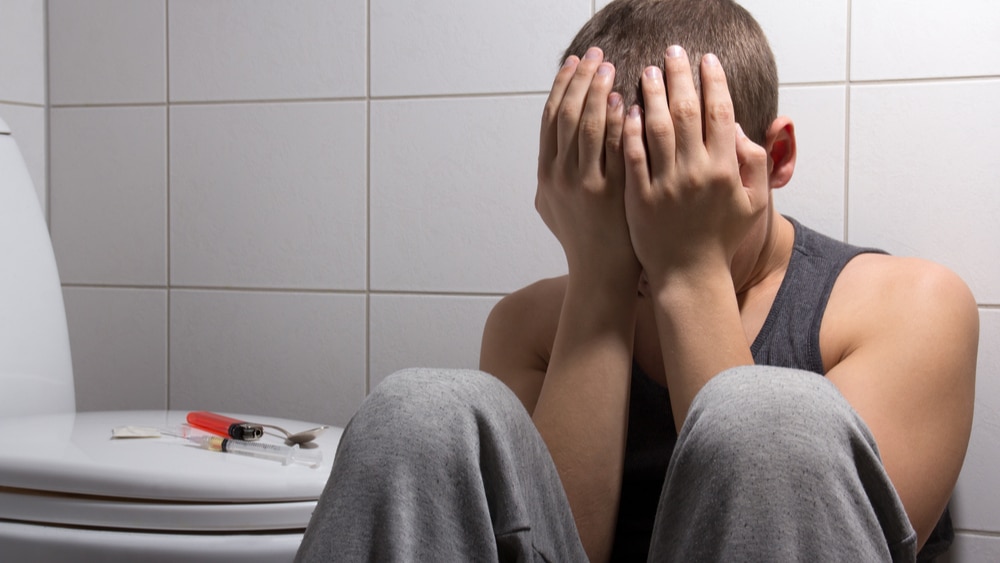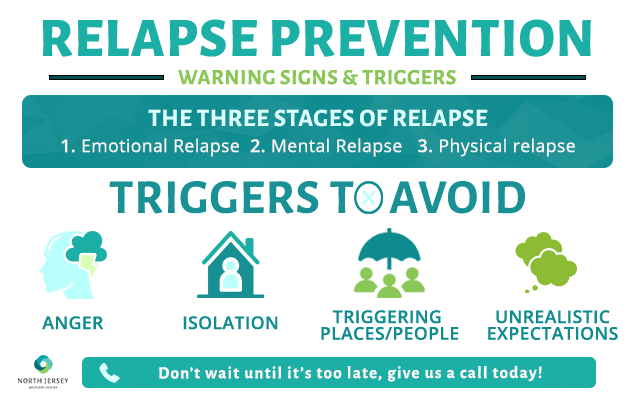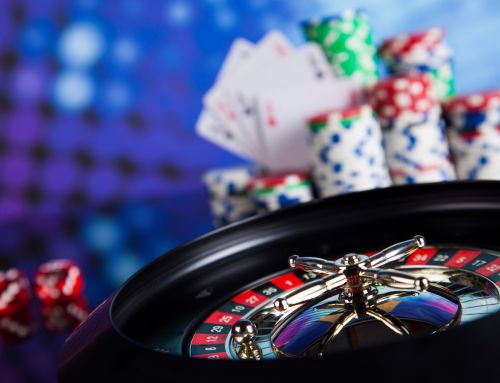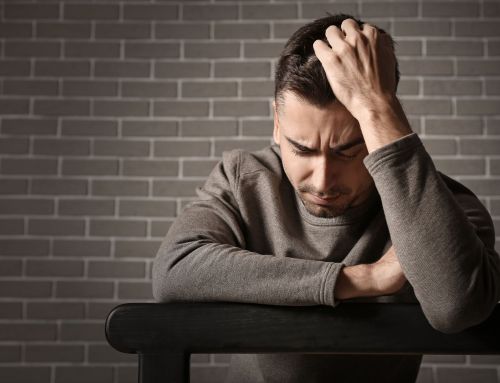
One of the biggest fears of every person in recovery is relapsing. It is so important to be aware of any relapse prevention warning signs because recovery from addiction usually comes with a lot of different challenges. However, it should be considered part of the recovery process and not a reason to give up.
Is Relapse A Failure?
Relapse is definitely not a failure. The persistent nature of addiction means that, for some people, relapse (returning to substance use after a period of abstinence) can actually be part of the recovery process. In fact,  relapse rates for drug and alcohol use are similar to rates of relapse for other chronic medical illnesses such as diabetes and hypertension.
relapse rates for drug and alcohol use are similar to rates of relapse for other chronic medical illnesses such as diabetes and hypertension.
When a person relapses, it means that the individual needs to reevaluate their treatment, restart their treatment, change it, or try a different treatment. This is the time to discuss with their care provider and make those adjustments.
Although relapse is a normal part of recovery, for some drugs it can be very dangerous. If the person goes back to using as much of the drug as they did before quitting, they can easily overdose because their body isn’t adjusted to their previous level of drug use.
The 3 Stages of Relapse
Relapse is not an event; it is a process. To understand relapse prevention you need to understand the stages of relapse which are:
- Emotional Relapse
- Mental Relapse
- Physical Relapse
1. Emotional Relapse
During the emotional relapse stage, you aren’t thinking about using. However, your emotions and behaviors are setting you up for future relapse. Signs of emotional relapse include the following:
- Anger
- Anxiety
- Isolation
- Intolerance
- Mood swings
- Not asking for help
- Not attending meetings
- Poor eating and sleeping habits
Prevention at this stage means first recognizing that you’re in emotional relapse and changing your behavior. Recognize that you are isolating. Recognize that your sleeping and eating habits are slipping and practice self-care. Remind yourself to ask for help.
2. Mental Relapse
During this phase, there is a battle going on in your brain. Part of you wants to use drugs or alcohol, but part of you doesn’t. In this early phase of mental relapse you just casually think about using. Eventually, you will definitely be thinking about using. Signs of mental relapse include:
- Lying
- Fantasizing about using
- Thinking about relapsing
- Glamorizing your past use
- Hanging out with friends you used drugs with
- Planning your relapse around other people’s schedules
- Thinking about people, places, and things associated with your drug use
 A typical mental urge is that you can get away with using it because no one will know. The fantasy is that you’ll be able to control your use this time. But, if you look ahead to the logical conclusion of using it, it won’t be so appealing. The logical conclusion is the same as before. You get caught in the same vicious cycle of addiction because if you could control your use, you would have done it by now.
A typical mental urge is that you can get away with using it because no one will know. The fantasy is that you’ll be able to control your use this time. But, if you look ahead to the logical conclusion of using it, it won’t be so appealing. The logical conclusion is the same as before. You get caught in the same vicious cycle of addiction because if you could control your use, you would have done it by now.
Call a friend, a supporter, or someone else in recovery and tell them that you’re having urges to use. The amazing thing about sharing is that when you tell someone about what you’re thinking, the urges will start to disappear. Or you can do something to distract yourself. Take a walk, call a friend, or go to a meeting. Most urges last for less than 15-30 minutes. It will seem like forever, but keep busy and it will eventually go away.
3. Physical Relapse
When you begin thinking about relapse, you need to use the techniques mentioned previously or you will go through the first two stages in no time. And soon, you find yourself driving to see your dealer or the liquor store. Once you reach that point, it is hard to stop the process of relapse. But if you recognize the early warning signs, you’ll be able to stop yourself before it’s too late.
The Journey
Sobriety is often described as a journey because of the length of time to get to a safe and healthy place. Battling addiction while dealing with the day-to-day challenges that come with life is extremely tasking. Those in recovery agree that there are so many different relapse prevention warning signs and triggers that may cause a relapse. Avoiding these triggers and thriving is very difficult but still possible.
One important thing to note is that a decline can happen at any time and, in many cases, a relapse may be a one-time thing only. In other cases, a relapse may lead to several further declines and, eventually, back to addiction. What determines whether relapse is a one-time thing or if it is not is how it is managed. Individuals in recovery need to be able to recognize their possible relapse prevention warning signs and triggers and have a relapse plan in place to handle them.
Understanding and Acknowledging Triggers
In most cases, triggers vary from person to person. However, some universal triggers have been identified. These situations make those on the path to sobriety susceptible to relapse. Having a better understanding of these triggers can help with relapse prevention warning signs.
Unrealistic Expectations
A lot of people in recovery expect their lives to completely change after overcoming addiction. It is natural to feel that major changes should begin to happen after such a significant life adjustment.
The disappointment that comes when these expectations are not fulfilled can be a relapse trigger. Individuals in recovery need to recognize that it is a process that may take some time. This understanding goes a long way in preventing a relapse. Part of recovery is getting your life back, and this will take some time.
Old/Familiar Friendships
Falling back into old habits with old acquaintances can also be a trigger for relapses. Friends may remind you of the euphoria of drug use while leaving out the bad parts. Those working toward sobriety need to avoid or limit their interactions with old friends.
Being around old friends allows you to consider drugs as an option when you are in bad situations. To ultimately ensure that drugs are not a solution for anything, you must keep old friends who encourage bad habits away.
Anger
Even sober people can find themselves doing unnatural things when angry. For people on the path to recovery, anger should be monitored closely as a trigger. Most people in recovery may feel an urge to resort to drug use to deal with anger. Individuals practicing sobriety must learn how to process anger without drugs. It is also vital for those in recovery to avoid getting angry as much as they can. Anger management can be treated with Cognitive-behavioral therapy.
Loneliness
A lot of people that just completed treatment deal with loneliness. This emotion is dangerous because most individuals in recovery may use pills to dull the loneliness. Whenever you may feel lonely, take some time to join a support team to distract yourself. As much as possible, individuals in recovery should avoid being lonely because it is a trigger. It is essential to be surrounded by friends and a network of supporters who can engage you well enough to prevent a relapse.
Hunger
Although it is hardly talked about, being hungry can impair one’s judgment. It is important that those in recovery eat well and frequently. Having a good meal makes you less likely to slip-up and relapse. Regular meals and healthy snacks are essential to prevent any potential relapses.
Fatigue
Those in recovery need to pace themselves. The initial excitement of being drug-free may lead many people who were once living a life revolving around addiction to take on more than they can handle. It is crucial to ensure that you expend energy consciously.
Fatigue can make anyone vulnerable, and it is crucial to avoid situations that may cause a person in recovery to feel powerless. If you are spread too thin, you may begin to look for energy sources, which may lead you back to square one.
Four Main Ideas in Relapse Prevention
- Relapse is a gradual process with noticeable stages. The goal of treatment is to help you recognize the early warning stages when the chances of success are the greatest.

- Recovery is a process of personal growth with milestones in development along the way. However, each stage of recovery has its own risks of relapse.
- The main tools of relapse prevention are cognitive therapy and mind-body relaxation. These help to develop and establish healthy coping skills.
- Most relapses can be explained through a few basic rules. Learning these rules can help you focus on what is important:
- Change your life (recovery includes creating a new life where it’s easier for you not to use)
- Be totally honest
- Ask for help
- Practice self-care
- Don’t bend the rules
Treatment
If you have experienced any of the warning signs, you may need professional help to maintain your sobriety. Although some relapses are one-time events, many relapses lead right back to a full-on addiction. Our professionals are available at North Jersey Recovery Center to help manage your triggers and warning signs. When well managed, these warning signs are only signs. Our professionals are experienced in dealing with relapses.
To ensure that all of our clients experience the best services, we offer free insurance verification services. The best therapy and treatment services for relapse prevention will be administered to you. Our personnel will contact your insurance providers directly to ensure that you get the necessary coverage.
Sobriety is a journey and we are experienced guides. Contact us now. At North Jersey Recovery Center, we make sure you continue to move forward on your journey. You deserve a happy and healthy life, and that’s exactly what we aim to give to you.







